September 17, 2019
The Manufacturing of Greta Thunberg – for Consent series has been written in two volumes.
[Volume I: ACT I • ACT II • ACT III • ACT IV • ACT V • ACT VI • Addenda I] [Book form]
[Volume II: An Object Lesson In Spectacle • ACT I • ACT II • ACT III • ACT IV • ACT V • ACT VI] [ACTS VII & VIII forthcoming]
• A 100 Trillion Dollar Storytelling Campaign [A Short Story] [Oct 2 2019]
• The Global Climate Strikes: No, this was not co-optation. This was and is PR. A brief timeline [Oct 6 2019]
We Mean Business
Above: On February 20, 2019, We Mean Business promoted the “It’s Going to Be Tremendous” podcast series via its Twitter account. The podcast series co-hosted by Christiana Figueres features interviews with We Mean Business CEO Nigel Topping, Greta Thunberg and Jane Goodall. Funding for Global Optimism is provided by We Mean Business.
The founding partners of We Mean Business are Business for Social Responsibility (BSR) (full membership and associate members list), CDP, Ceres, The B Team, The Climate Group, The Prince of Wales’s Corporate Leaders Group (CLG) [1], and the World Business Council for Sustainable Development (WBCSD). Together, these organizations represent the most powerful – and ruthless – corporations on the planet, groups salivating to unleash 100 trillion dollars to fuel the fourth industrial revolution.
We Mean Business represents 477 investors with 34 trillion USD in assets. [July 4, 2019]
Above: The We Mean Business co-founders
Nigel Topping is the CEO of the We Mean Business Coalition, a founding member of the We Mean Business board, as well as the former executive director of CDP (formerly Carbon Disclosure Project). CDP is “a global NGO which has brought together 655 of the world’s investors, representing assets under management of over $78 trillion, to engage with over 6000 of the largest public corporations on the business implications of climate change.” [Source] ClimateWorks [Act I] shares the physical address, inclusive of suite, of both the CDP (West, Americas) and the Climate Policy Initiative (CPI). [235 Montgomery Street, Suite 1300, San Francisco, CA 94104][CPI Website][CDP website]
Topping also serves on the boards of several institutions, including the Science-Based Targets Initiative, the Energy Transitions Commission, the Grantham Institute, the London Pension Funds Authority, and Daimler. [LinkedIn]
In order to support the implementation of its work, We Mean Business collaborates with a number of other organizations. The implementation partners of We Mean Business include the World Resources Institute, WWF, the Rocky Mountain Institute, the United Nations Global Compact, and C40 Cities [2] while network partners include the New Climate Economy, Mission 2020, E3G, the United Nations Environment Programme, and the World Bank. [Full list]
Sitting on the We Mean Business Board are Peter Bakker, WBCSD president; Helen Clarkson, CEO of The Climate Group; Aron Cramer, CEO of BSR; Steve Howard (co-chair), former chief sustainability officer for IKEA; Mindy Lubber, president of Ceres; Paul Simpson, CEO of CDP; Halla Tómasdóttir, CEO of The B Team; Nigel Topping, CEO of We Mean Business; Eliot Whittington, director of The Prince of Wales’s Corporate Leaders Group; and Celine Herweijer (co-chair), partner and global innovation and sustainability leader of PwC (PricewaterhouseCoopers).
The We Mean Business Compliance Committee consists of the aforementioned Steve Howard; Bruce Boyd, principal and senior managing director at Arabella Advisors; Elizabeth McKeon, head of strategy at IKEA Foundation; and Michael Northrop, sustainable development program director at Rockefeller Brothers Fund.
The We Mean Business Corporate Advisory Group includes representatives from UltraTech Cement, Mahindra, BT (British Telecom), Bank of America Merrill Lynch, Community Energy England, Unilever, Interface, CLP Group (China Light and Power Co), Iberdrola, IKEA, and Yes Bank. [Source]
The We Mean Business Coalition was launched in 2014 by Steve Howard who had previously set up The Climate Group in 2003.
Howard served as chief sustainability officer (CSO) at IKEA Group having served on IKEA’s Executive Group Management from 2011-2017. In addition to co-chairing We Mean Business, Howard sits on the board of SE4ALL (Sustainable Energy For All) and serves as co-chair of the World Economic Forum’s Global Future Council on Environmental and Natural Resource Security. [Further reading: Fit for whose purpose? Private funding and corporate influence in the United Nations, Sustainable Energy For All, pp. 86-96]
Above: Image from We Mean Business April 2019 edition newsletter
We Mean Business & Purpose Create the Climate Campaign Lab
New Power: “The ability to harness the connected crowd to get what you want”
— Jeremy Heimans, co-founder Purpose/Avaaz, B Team expert [Source]
The June 12, 2018 We Mean Business article “Profiles of Paris: Steve Howard on helping business be a force for good” shares the history of those who assisted in the formation of the We Mean Business coalition:
“Hannah and I reached out to others, to leaders at the Climate Group, Ceres, WBCSD, BSR, and CDP, CLG and the B Team. Some of us met at the fringes of Climate Week NYC and then in October 2013, this group of busy people travelled to a small hotel in Wassenaar in the Netherlands to spend a weekend planning something different…”
Howard outlines the assistance in forming We Mean Business provided by three main NGOs: World Resources Institute, Greenpeace, and WWF, as well as two pivotal institutions that assisted, ITUC and the UNFCCC.
“Dominic Waughray [bio] and the WEF team supported us (a lot) at Davos where we met again. (The WEF team through initiatives such as the Alliance of CEO Climate Leaders have been hugely effective in promoting business action on climate). We reached out to other business leaders, friends in Unilever, Marks and Spencer, DSM, Swiss Re and others. We talked through our plans with, Andrew Steer at WRI, Kumi Nadoo in Greenpeace, Sam Smith in WWF and Sharan Burrow from ITUC and Christiana Figueres in the UNFCCC. Sam had worked with the Climate seven group of NGOs and was generous with her advice on coalition building. We met as a group with the climate seven. We needed to make sure that if we had a super business coalition on climate change that it was genuinely credible with civil society leaders…”
Howard further discloses that the initial funding for We Mean Business came from IKEA, a founding partner in Macron’s Climate Finance Partnership:
“I spoke at length with Per Heggenes at IKEA Foundation and he could see we had a powerful idea. Per gave me a slot of the limited time at his next board meeting…A few minutes later the board agreed to 20 million Euros…When you have to move fast there is little or no time for mistakes. I asked people I really trusted if they would step up and amongst others Jim Walker bravely agreed to be seconded from the Climate Group as secretariat CEO, and Callum Grieve, who I had worked with on the launch of Climate Week NYC a few years before, stepped in on communications.”
Howard confirms the corporate uptake, not only for Climate Week NYC 2014, but for the People’s Climate March:
“We Mean Business launched at Climate Week NYC 2014. Together with the new IKEA Group CEO Peter Agnefjäll, we joined the Climate March, with other business leaders from Virgin, Unilever, NRG, Patagonia and many others. IKEA colleagues promoted the People’s Climate March on the IKEA home page in twenty countries. We had reached out to business contacts everywhere. Tim Cook from Apple joined us on the Climate Week stage to be interviewed by Christiana Figueres…”
Climate Week NYC 2019 sponsors and partners include, but are not limited to: Salesforce, McKinsey, Bank of America, Unilever, IKEA, ClimateWorks, Rockefeller Brothers Fund, Global Citizen (youth and climate activism partner), We Mean Business, and the UN Climate Action Summit. [3] [Source]
Here, Howard’s full disclosure on the relationship with Purpose – the for-profit public relations arm of Avaaz, specializing in behavioural change, “new power” and “ownerless movements” – is striking. Again, we see the theme of corporations and civil society uniting as one under the banner of climate:
“Alongside We Mean Business, Hannah and I had been working with the communications and campaign organisation Purpose to set up a climate campaign lab. We wanted bold breakthrough messages that people would mobilize behind. Purpose were looking at the creation or amplification of ownerless memes and 100% renewable really caught their attention. It got wider traction. And on the final run up to Paris “100% Renewable” got lifted even further and became the call to action for Greenpeace, Avaaz and others. Hundreds of businesses and civil society organisations with the same message so loud and clear you could not miss it.
Howard cites the corporations and monies involved at an early stage, as well as the assistance from Jim Walker, director of partnerships at Sustainable Energy for All. Walker is a co-founder of The Climate Group as well as the founding CEO of We Mean Business. He sits on the advisory board of Energy Unlocked (“Our 2016 EPIC project and platform was supported by ClimateWorks Foundation”), IronOak Energy and Green Collar Foods, and is the executive director of Thirst. In 2014, he established the Climate Mobilization Fund “to assist the IKEA Foundation and others in mobilizing business and civil society action on climate change”:
“At the beginning of 2015, Jim Walker moved to manage the coalition’s funding and Nigel Topping jumped from CDP into the CEO role for the secretariat… As I write this in March 2018, more than 700 companies, with a market capitalisation of over US$15.7 trillion have made more than 1,170 commitments…”
In addition, Walker serves as an advisor to the Purpose Climate Lab. [Source] [Source]
Prior to Paris, the IKEA Foundation doubled its annual funding for the We Mean Business initiative. A press release announcing IKEA’s additional gift of 1 billion EUR “to finance climate action” by 2020 was understood as a means to place “positive pressure” on governments:
“The June before Paris [2015] there was a climate finance meeting of negotiators in Bonn: negotiations were slow. After the decision on We Mean Business, the IKEA Foundation board had just decided to double its annual funding, with an extra 100 million Euros per year going to climate change by 2020. Alongside an IKEA group commitment to a further 600 million Euros into wind and solar energy we had a commitment of 1 billion Euros to finance climate action by 2020. Real, additional money. We announced the 1 billion Euros in Bonn. Yes, the press coverage was good, but we did it for the moment, to put positive pressure on governments.”
In the same way, Greta Thunberg and the climate strikes amplify the “positive pressure” strategy. That is the rationale behind the generous media exposure afforded to the strikes. Rather than the “solutions” appearing top down, they are perceived as being driven by society. Yet nothing could be further from the truth. Encouraging the citizenry to bask under the illusion that the ruling elite must answer to the populace, this quickly transforms into a heightened and euphoric feeling of new-found “people power” amongst the populace. It is in this defining moment that the “solutions” waiting in the wings, can finally emerge.
In the following paragraph, Howard is clear that the role of government to accommodate the “new climate economy” is to develop long-term, well-designed policy frameworks which corporations “can plan on and invest in”:
“We went to the Abu Dhabi Ascent: the pre-COP summit in January 2015. The dialogue between ministers and the private sector was a little limited. From memory, I think it was only Paul Polman (who was absolutely relentless on the run up to Paris) from Unilever and myself that spoke in plenary from the business community… For a business leader I made the rare interjection of saying, “you can regulate us, you can price carbon, you can tax us, but make it long, loud and legal.” We needed policy makers to understand, businesses do not like bureaucracy and red tape but they do like long-term well-designed policy frameworks that you can plan on and invest in…
By the time of Paris the coalition partners were in lock-step. Ed Cameron from BSR (with great support from the policy folk in CLG, CERES and other partners) was working as policy director for the coalition and had worked across the teams to craft a business brief with 8 common policy asks. Business leaders were supported and the forward-thinking business community had a common message for negotiators… Many, many, business leaders worked either on the stage or behind the scenes… “
Acknowledging that “clear solid funding is a massive enabler” of the We Mean Business coalition, Howard recognizes those most involved. In the second paragraph, Howard expresses his gratitude to those belonging to NGOs and institutions:
“My greatest thanks go to the leaders of the partners, to Mindy Lubber [Ceres], Peter Bakker [President and CEO of the World Business Council for Sustainable Development (WBCSD)], Aron Cramer [President and CEO of BSR], Paul Simpson [CEO, CDP], Raj Joshi [The B Team], Keith Tuffley [Managing Partner & CEO The B Team], Sandrine Dixson-Declève [former Director of the EU Corporate Leaders Group on Climate Change], Mark Kenber [CEO of The Climate Group] and Helen Clarkson [CEO of The Climate Group]. They took a risk. They took a more challenging path than going alone. Many others across the partners have played key roles, Leah Seligmann [The B Team] and Jean Oelwang [President and Trustee for Virgin Unite and Senior Partner at the B Team], Anne Kelly, Jill Duggan [Prince of Wales’s Corporate Leaders Group], Eliot Whittington [Prince of Wales’s UK Corporate Leaders Group], Damian Ryan, Lance Pierce [President of CDP North America] and Maria Mendiluce [WBCSD].
Others deserve our thanks for their partnership and encouragement, Andrew Steer at WRI, Kumi Naidoo, then at Greenpeace, Achim Steiner, Dominic Waughray and the WEF team, Sam Smith and colleagues in WWF, the wider climate seven, Sharan Burrow from ITUC for always building bridges and community and Christiana Figueres and the team at the UNFCCC for creating space.”
Inclusive of Dominic Waughray, who leads Global Public Goods (which “seeks to help shape the existing global governance architecture by adapting to today’s multipolar reality and working to encourage more private-sector capital, entrepreneurship and Fourth Industrial Revolution innovation into public-private cooperation”) all of the institutions recognized by Howard, have been disclosed in the Manufacturing for Consent series as the leading institutions behind the elite-sought fourth industrial revolution as a means to reboot the global economic system, coupled with the coming financialization of nature.
Above: We Mean Business, October 5, 2015, Twitter
We Mean Business Co-founder – The B Team
The B Team, co-founded by Richard Branson and Jochen Zeitz (former CEO of Puma SE), was formed and incubated by Branson’s Virgin Unite and partner organizations in 2013.
Major funders of The B Team include the Ford Foundation, Kering Group, Guilherme Leal, Strive Masiyiwa, Joann McPike, The Tiffany and Co. Foundation, The Rockefeller Foundation, Unilever and Virgin Unite.
Other major financial supporters at inception included billionaire Derek Handley (CEO of B Team upon launch) and One Young World co-founded by David Jones. Jones is the former CEO of Havas Media and co-creator of the 2009 TckTckTck campaign. Jones, “B Team expert”, is also the founder of You & Mr Jones, a holding company that is one-part venture capitalist, one-part consultancy and one-part agency. The consultancy arm is Blood “the world’s first brandtech™ group”. Jones is the author of Who Cares Wins and served on the Facebook Client Council. In 2019, You & Mr Jones purchased a majority stake in Oliver owner Inside Ideas Group for an estimated $200m. Oliver’s biggest client is Unilever. [Source]
Above: TckTckTck Flickr: “The Press Conference of the ‘Beds are Burning’ Launch in Paris was well attended as Kofi Annan, David Jones, Mélanie Laurent, Manu Katché and many other supporters of the campaign made their appearance.”
The B Team Leaders are as follows:
- Arianna Huffington: founder of The Huffington Post, founder and CEO of Thrive Global
- Christiana Figueres: Convener of Mission 2020, vice chair of the Global Covenant of Mayors, Climate Leader for the World Bank, Distinguished Fellow of Conservation International, board member of Climate Works and the World Resources Institute, member of the Rockefeller Foundation Economic Council on Planetary Health
- David Crane: investor and strategic advisor
- Emmanuel Faber: chairman and chief executive officer of Danone
- François-Henri Pinault: CEO and chairman of luxury brand Kering
- Guilherme Leal: co-founder of Natura, serves on the boards of WWF Brazil and the United Nations Global Compact
- Hamdi Ulukaya: founder, chairman and CEO of Chobani
- Isabelle Kocher: CEO of ENGIE, the world’s largest independent power producer
- Jochen Zeitz: co-founder and co-chair of The B Team, founder of the Zeitz Foundation, served 18 years as chairman and CEO of PUMA SE
- Kathy Calvin: president and CEO of the United Nations Foundation, former president of the AOL Time Warner Foundation, previously served in senior positions at AOL, Hill and Knowlton, and U.S. News & World Report
- Marc Benioff: chairman and co-CEO of Salesforce
- Mary Robinson: president of the Mary Robinson Foundation – Climate Justice, former President of Ireland from 1990-1997, member of Richard Branson’s The Elders
- Mats Granryd: director general of Global System for Mobile Communications (GSMA), commissioner on the World Business & Sustainable Development Commission
- Mo Ibrahim: founder and chair of the MoIbrahim Foundation, founder of Mobile Systems International (MSI) and Celtel International, founding chairman of Satya Capital, (a private equity fund focused on Africa), chairman of TPG-Satya
- Muhammad Yunus: chairman of Grameen Bank
- Ngozi Okonjo-Iweala: chair of Gavi, The Vaccine Alliance, former Finance Minister of Nigeria and former managing director of the World Bank
- Oliver Bäte: CEO of Allianz SE
- Paul Polman: served in senior leadership roles at both Nestlé and Procter & Gamble prior to becoming CEO of Unilever (2009-2018), appointed to the U.N. Secretary General’s High-level Panel responsible for developing the Sustainable Development Goals (SDGs), founding member of the World Business & Sustainable Development Commission, U.N.-appointed SDG Advocate, leading member of Financing Capitalism for the Long-Term (FCLT), the Coalition for Inclusive Capitalism, the Global Commission on the Economy and Climate and the Food and Land Use Coalition (which he chairs), counsellor and chair of the Global Advisory Board of One Young World (co-founded by the aforementioned “B Team expert” David Jones), named an Honorary Knight Commander of the Order of the British Empire (KBE) for services to business in 2018, a non-executive director of Dow since 2010.
- Ratan Tata: former chairman of Tata Sons, Tata has been conferred the honorary title of Chairman Emeritus of Tata Sons, Tata Industries, Tata Motors, Tata Steel and Tata Chemicals. During his tenure, the group’s revenues grew manifold, totalling over 100 billion USD in 2011-12. He serves on the board of directors at Alcoa as well as on the international advisory boards of Mitsubishi Corporation, JP Morgan Chase, Rolls-Royce, Temasek Holdings, and the Monetary Authority of Singapore.
- Sharan Burrow: general secretary of the International Trade Union Confederation (ITUC), commissioner on the World Business & Sustainable Development Commission, Global Covenant of Mayors for Climate and Energy observer and advisor
- Yolanda Kakabadse: president of WWF International from January 2010-December 2017
- Zhang Yue: chairman and founder of Broad Air Conditioning
[B Team Leaders] [B Team Experts] [B Team Founder Circle and Programmatic Donors]
Above: On February 23, 2017, The B Team and Safaricom announced plans to create The B Team – Eastern Africa
The B Team experts roster is also extensive. It includes:
- Alexander Grashow: a senior advisor and lead moderator for the Clinton Global Initiative
- Heather Grady: senior fellow, Global Philanthropy for Rockefeller Philanthropy Advisors
- Mindy S. Lubber: president and a founding board member of Ceres, coordinator of Ceres’ Business for Innovative Climate & Energy Policy (BICEP), founder of Green Century Capital Management
- Jeremy Heimans: co-founder of Avaaz, co-founder and CEO of Purpose, “a home for building 21st century movements and ventures that use the power of participation to change the world”, advisor to the Bill and Melinda Gates Foundation, the ACLU and Google, recipient of the Ford Foundation’s 75th Anniversary Visionary Award, World Economic Forum Young Global Leader
- Hunter Lovins: president of Natural Capitalism Solutions, author of The Way Out: Kickstarting Capitalism to Save Our Economic Ass – a sequel to the international best-seller Natural Capitalism
- John Fullerton: founder and president of Capital Institute, active impact investor through his Level 3 Capital Advisors, former managing director of JPMorgan, a director of the New Economy Coalition, full member of the Club of Rome, creator of the “Future of Finance” blog at Capital Institute.org, which is syndicated with The Guardian, Huffington Post, CSRWire, and other media outlets
- John Elkington: founding partner and executive chairman of Volans, a consultancy and think-tank driving market-based solutions to the future’s greatest challenges, signatory to the XR Business initiative, member of the WWF Council of Ambassadors, member of the Advisory Board of The Climate Group‘s Clean Revolution Campaign, serves on Newsweek’s Green Rankings Advisory Board, Kering’s Technical Advisory Board, and the advisory board of The Social Stock Exchange just launched by the UK Prime Minister. He is also identified as a member of the Guardian Sustainable Business advisory panel.
Above: The B Team website, July 17, 2017: “Earlier this year Virgin Unite shared the news that Christiana Figueres – former UN climate chief and convener of Mission 2020 – had joined Richard Branson and Jochen Zeitz (B Team co-founders) as one of the B Team’s newest global leaders.” [Source]
Above: The B Team website, January 30, 2019: Greta Thunberg, Climate Activist, Kringlaskolan Södertälje, Sweden, speaking at the Session “Preparing for Climate Disruption” at the Annual Meeting 2019 of the World Economic Forum in Davos, January 25, 2019. Congress Centre – Jakobshorn, Copyright by World Economic Forum / Mattias Nutt [The B Team: To B or Not To B in Davos]
Above: The B Team, March 27, 2019 newsletter: “On March 15, an estimated 1.6 million students in 120 countries participated in the Global Student Climate Strike, calling on leaders to act with the urgency the climate crisis needs. Inspired and humbled by their courage, our Leaders shared their support and thanked these students for reminding the world what its leaders are accountable for—their future.”
Above: The B Team Twitter account, March 15, 2019
Above: The “New Power” advocates: January 22, 2014, Kumi Naidoo, Twitter | From left: Richard Branson, Kumi Naidoo, Jeremy Heimans (Avaaz/Purpose)
Working as part of the Natural Capital Coalition, The B Team supported the development of “the first global, standard Natural Capital Protocol” in 2016. The protocol creates “a set of tools for corporations to “measure their impacts and dependencies on nature”. These tools will be used to support the global plan to monetise nature (a “new deal for nature”). Because “what you can’t value what you can’t measure”. The protocol was launched in 2016, following pilots by more than 40 corporations including luxury brand Kering (B Team major funder, Kering CEO a B Team expert) and Dow Chemical (Dow CEO a B Team “leader”).
Above: Natural Capital Protocol partners
Above: The Natural Capital Coalition
Above: Finance For One Planet, CoP Financial Institutions and Natural Capital, 2016 [Source]
The B Team continues to grow and expand its coalition of corporate executives. In 2018, Indra Nooyi, chairman and former CEO of PepsiCo, joined the coalition. More recently, The B Team welcomed Ajay Banga, president and CEO of MasterCard. Another B Team leader is Andrew Liveris, chairman and CEO of Dow Chemical Company. Liveris also serves as a member of The Nature Conservancy’s Latin America Conservation Council, and the Concordia Leadership Council. [Full bio].
Purpose
Purpose, which worked with We Mean Business to set up its climate campaign lab, creates cause-related campaigns for non-profits, foundations, and corporations. Purpose clients and partners include IKEA, Unilever, and the Ford and Rockefeller foundations, to name a few (see image below).
One may need reminding that Purpose “movements” are not decrying the more than 300 assassinations of Colombian leaders over the last two years [August 9, 2018, Source], a tragic number which is no doubt higher today. Rather, they are organizing Concordia Summits to facilitate an advancing privatization in Columbia (and the world at large) as they court right-wing politicians and oligarchs. This can best be described as “power in white face”.
If power dominated through hierarchy and coercion – the emergent “new power” model dominates with influence and persuasion. And while this has been achieved for some decades now by the NGOs comprising the non-profit industrial complex, a growing number of corporations, institutions and states, are now applying it to their business models. The main differences are that first, the organizers remain invisible, and second, the populace is manipulated into believing that they control said movements.
At the helm of this new model is Avaaz/Purpose co-founder Jeremy Heimans. Purpose, the PR firm (with many arms) specializes in movement building and behavioural change.
Heiman’s vision is to organize “people not as citizens but as consumers” so as to further empower corporations and brands that he refers to as “the angels”. Among the firm’s partners are some of the world’s most powerful corporations, foundations and institutions, including The Rockefeller Foundation, Ford Foundation, Unilever, IKEA, General Electric, Starbucks, TED, Oxfam, SEIU, WHO, UNICEF, ACLU, British Telecom, the Concordia Summit and Nike. Collaborators include We Mean Business and The B Team which is registered to the address of Purpose New York.
Video. Jeremy Heimans & Timms: Kaepernick is New Power’s 6 Billion Dollar Man [Running time: 0:45s]:
With strong ties and loyalties to many elite institutions and oligarchs, such as Purpose partner the United Nations (where Heimans cut his teeth as in intern in 1999), the Omidyar Network, and Virgin’s Richard Branson (founder of The B Team, The Elders, Carbon War Room, etc.), Purpose now has a global presence with seven international offices operating in New York, San Francisco, London, New Delhi, Nairobi, Sao Paulo, and Sydney. This expansion is in line with new behavioural insight teams, which are steadily proliferating in government buildings across the globe.
[Further reading: Purpose Goes to Latin America, Part I, August 8, 2018]
+++
New Power
“Whoever mobilizes is going to win. And if you are understanding new power you can end up on top. Welcome to the new power world.”
The above quote is taken from the marketing video for the book titled New Power: How Power Works in Our Hyperconnected World–and How to Make It Work for You (released April 3, 2018). The book authored by Jeremy Heimans (Avaaz/Purpose) and Henry Timms (until recently, the CEO of 92nd Street Y, a 143-year-old institution located in New York City) follows their prior publications: New Power: How It’s Changing The 21st Century (2018) and Why You Need To Know and Understanding ‘New Power’ (Harvard Business Review, 2014).
Timms is the creator and co-founder of Giving Tuesday, “a classic new power movement”. [Source] Giving Tuesday is funded by such giants as the Bill & Melinda Gates Foundation and Facebook. In February 2019, it was announced that Timms would leave 92Y for the Lincoln Centre for Performing Arts where he now serves as president and CEO. Timms continues as co-chair of 92Y’s Belfer Center for Innovation and Social Impact and in guiding Giving Tuesday.
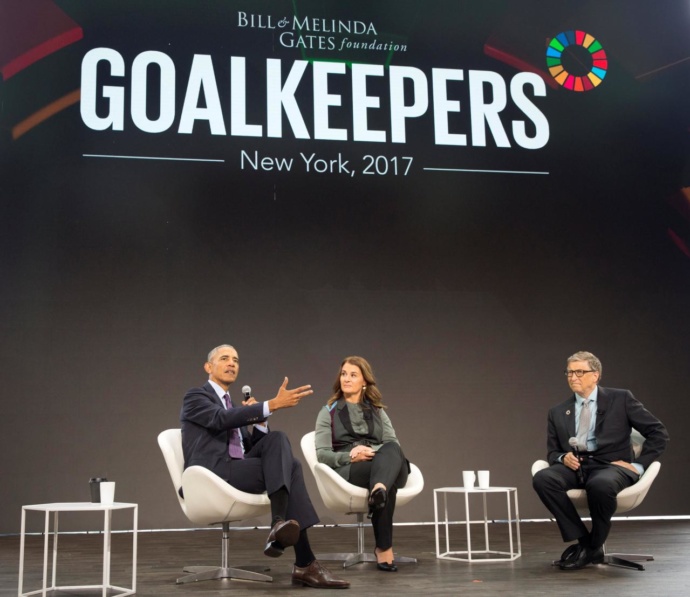
Former U.S. President Barack Obama accompanied by Melinda and Bill Gates speaks at the Bill & Melinda Gates Foundation Goalkeepers event in New York, U.S., September 20, 2017. REUTERS/Elizabeth Shafiroff
At the 2015 Concordia summit, Heimans and Timms co-moderated a panel. Their session, “Introducing: New Power in a Multi-stakeholder World,” featured an exciting line-up of speakers, each pioneering change in their respective industries in innovative ways.”
This year, on September 22-24, 2019, the Concordia Annual Summit is set to be “the largest and most inclusive nonpartisan forum” held alongside the United Nations General Assembly. [Source]
New Power has been named best book of 2018 by the Financial Times, Bloomberg, Fortune, Inc. and CNBC, and Heimans has advised institutions such as the Bill & Melinda Gates Foundation, Google and Unilever. A Harvard University grad and McKinsey & Co. alum, Heimans has addressed the World Economic Forum, the United Nations, TED, and the Aspen Institute. [Source]
On September 30, 2019, at this year’s World Leadership Forum dinner, the Foreign Policy Association will honor Heimans. Hosted by the Foreign Policy Association and coinciding with the United Nations General Assembly, the World Leadership Forum is one of the foremost public forums on global affairs. Individual admissions can be purchased for 1,000.00 USD. [Source]
[Further reading: Purpose Goes to Latin America, Part I]
“The future will be a battle over mobilization.”
— Jeremy Heimans and Henry Timms, New Power
Social Good
The creation of the Social Good Summit (launched in 2012) is attributed to Timms, in partnership with the United Nations Foundation, the Bill & Melinda Gates Foundation, Ericsson, the United Nations Development Programme, and Mashable.
Following the Social Good Summit came the launch of the SocialGood “community”. The founding partners of the SocialGood community include the Bill & Melinda Gates Foundation, the Case Foundation, Caterpillar, Cisco, Enactus, Mashable, the Rockefeller Foundation, the United Nations Development Programme, the United Nations Foundation, and 92Y. [Source]
This year’s speakers at the Social Good summit include Greta Thunberg, Christiana Figueres, founding partner of Global Optimism and former executive secretary of the UN Climate Convention, [ACT II], and Kumi Naidoo, secretary general of Amnesty International, former president/CEO of both Greenpeace and TckTckTck. Also featured is Achim Steiner, administrator of the United Nations Development Programme. Steiner is a former advisory board member of TEEB – now the Natural Capital Coalition (the financialization of nature under the guise/branding of a “New Deal for Nature”).
Video: Towards a Global Green New Deal, UN Environment, December 28, 2009 [Running time: 6:20]:
The video above features Achim Steiner promoting the Green New Deal in 2009. Back then, it was promoted as a solution to save the economy; now, it is promoted as a solution to save the climate. In both instances, its sole purpose has been to inject growth into a global economic system on the verge of collapse. The main difference today is that the Green New Deal encompasses the assigning of monetary value to nature. This will transform the global financial system itself, bringing into existence a new financial accounting system which has taken well over a decade to refine. The Green New Deal is essentially a Trojan horse for the ultimate corporate coup of the commons.
“Can investment in green industry technologies and nature-based assets help lift the world out of recession? UNEP and its UN partners are confident it can. According to Achim Steiner, the Executive Director of UNEP its already happening. He says getting out of the recession will be a boost to building a new green economy. Environmentally-focused investment represents an historic opportunity for 21st century prosperity and job generation.”
— Towards a Global Green New Deal, UN Environment, December 28, 2009
“This is probably the most difficult task we have ever given ourselves, which is to intentionally transform the economic development model, for the first time in human history.”
— Christiana Figueres, UNFCC Executive Secretary, February 3, 2015 Press Conference, Brussels [Source]
The strategy to exploit the ecological crisis, in order to save economic growth, is not new. After an initial and fairly short-lived backlash against the “green economy” (growth under the guise of green, UN Conference on Sustainable Development, Rio, 2012), the power elite regrouped. By 2014, Avaaz/Purpose founder Jeremy Heimans would disclose the strategy to “kill green” in order to save it. The green economy was repackaged as the “new economy”.
“Chakrabarti had an unexpected disclosure. “The interesting thing about the Green New Deal,” he said, “is it wasn’t originally a climate thing at all.” Ricketts greeted this startling notion with an attentive poker face. “Do you guys think of it as a climate thing?” Chakrabarti continued. “Because we really think of it as a how-do-you-change-the-entire-economy thing.”
— AOC’s Chief of Change-Saikat Chakrabarti isn’t just running her office. He’s guiding a movement, Washington Post, July 10, 2019
The Climate Group
Leading up to the September 2019 media sensation in conjunction with the United Nations Climate Action Summit, the Concordia Summit, and the global climate strikes is Climate Week NYC. This annual event is a project of The Climate Group, co-founder of We Mean Business.
The Rockefeller Brothers Fund also acts as an incubator for in-house projects which later evolve into free-standing institutions – a case in point being ‘The Climate Group’, launched in London in 2004. The Climate Group coalition includes more than 50 of the world’s largest corporations and sub-national governments, from financial institutions such as Goldman Sachs, to media institutions such as Bloomberg to IT conglomerates such as Hewlett Packard. [4]
The Climate Group functions as the secretariat for the Under2 Coalition, an alliance of state and regional governments. As of 2017, the Under2 Coalition brings together over 220 governments from 43 countries, representing 1.3 billion people and 43% of the global economy. The Climate Group’s initiatives “RE100“, “EP100” and “EV100” are run as part of the We Mean Business coalition.
Climate Week NYC was founded in 2009 as a partnership between The Climate Group, the United Nations, TckTckTck, the UN Foundation, the City of New York, the Government of Denmark, and the Carbon Disclosure Project (CDP).
Climate Week NYC 2019, taking place September 23-29, is the biggest Climate Week event in the world. This year, there is a predominant focus on youth with Global Citizen as a key partner. Partners of Global Citizen include Citi, P&G, Coca-Cola Africa, Microsoft, Forbes, Havas, and Johnson & Johnson. [Global Citizen Partners]
Above: July 18, 2019: “Climate Week NYC 2019 is partnering with international advocacy organization Global Citizen for its Youth and Climate Activism Program. The program will reflect the global leadership of young people and its influence on climate action and align with the Youth and Public Mobilization theme of the United Nations Secretary-General’s Climate Action Summit.” [Source] Global Citizen partners include P&G, National Geographic and Radical Media.
“Today’s youth are leading the charge on protecting both people and planet from catastrophic climate change, and through our partnership with Climate Week NYC, we are excited to equip them with the tools and resources to effect more change through the Youth and Climate Activism Program. 2020 will be a pivotal year to catalyze efforts…”
— Michael Sheldrick, Vice President of Global Policy and Government Affairs at Global Citizen
“The Youth and Climate Activism Program will bring together a number of events specifically focused on engaging and working with young people seeking to engage in climate action and will be the lead focus for Climate Week NYC 2019.”
— Helen Clarkson, CEO of The Climate Group
“Young leaders are stepping up across the world, calling on everyone to join them on their mission to create a cleaner and healthier planet for future generations. As business leaders, NGOs, and government officials, we must work together and use our influence to step up and help catalyze impactful change.”
— Suzanne DiBianca, Chief Impact Officer and EVP of Corporate Relations at Salesforce
Video. Global Citizen Festival 2019, NYC’s Central Park, September 28, 2019 [Running time: 0:30s]:
“Join Queen + Adam Lambert, Pharrell Williams, Alicia Keys, OneRepublic, H.E.R., and Carole King in NYC’s Central Park … Download the Global Citizen app today to start taking action and earn your free tickets.”
Above: The Climate Group welcomes Greta Thunberg – its most successful social experiment to date, Twitter
Above: Teen Vogue climate strike special issue, September 16, 2019
The sober images of Thunberg, as depicted and shared by the Climate Group, and the media at large, are very much intentional as outlined in the original document “Leading the Public into Emergency Mode: A New Strategy for the Climate Movement” published by The Climate Mobilization:
“The way we respond to threats — by entering emergency mode or by remaining in normal mode — is highly contagious. Imagine the fire alarm goes off in an office building. How seriously should you take it? How do you know if it is a drill or a real fire? Those questions will be predominantly answered by the actions and communications of the people around you, particularly people designated as leaders. If they are chatting and taking their time exiting the building, you will assume that this is a drill. If people are moving with haste, faces stern and focused, communicating with urgency and gravity, you will assume there is real danger and exit as quickly as possible.” [Section: Both Emergency Mode and Normal Mode Are Contagious] [Emphasis in original]
The American exceptionalism ideology espoused by the Climate Mobilization is shared by many inclusive of the World Business Academy:
“And if you really want to know how much money a green environment is going to create, I would urge you to look at the economy the United States of America in 1939 in compared to the economy of the United States of America in 1947… it turns out we got really rich by doing the right thing. We mobilized. We saved democracy for the free world and in the process we built the Western democracy that’s been running the world for them ever since. The same or better awaits us if Margaret Klein Solomon is successful and I believe she will be with her efforts at Climate mobilization.”
— Rinaldo Brutoco, World Business Academy, introduction for The Climate Mobilization founder, Margaret Klein Salamon, Event: “2019: The Year of Climate Mobilization”, February 2019, [Source]
Climate Week 2017 Sponsors
Business For Nature
“…our natural world provides environmental services to our economy worth over $125 trillion annually.”
— Business For Nature website
“Business for Nature calls on governments to adopt a new deal for nature and people in 2020.”
“How can business deliver for Nature?… promoting policy changes to governments to establish the policy frameworks needed to drive economic changes at scale.”
“THE OCEAN ECONOMY ESTIMATED TO BE WORTH $2.5 TRILLION PER ANNUM”
New coalitions are forming to assist in the implementation of the financialization of nature. That is, the privatization of nature, global in scale, ushered in under the guise of protecting biodiversity. WWF leads the public charge with the “New Deal For Nature” and “Voice for the Planet” campaigns, while the Natural Capital Coalition, with institutions and NGOs such as the Intergovernmental Science-Policy Platform on Biodiversity and Ecosystem Services (IPBES – a Natural Capital Coalition partner), the Convention on Biological Diversity (CBD), The Nature Conservancy and Conservation International work in united servitude to corporate power to advance the total capture of nature’s “services”.
One recently formed coalition is Business For Nature. Launched on July 2, 2019, the coalition founders are We Mean Business, the World Economic Forum, The Nature Conservancy, WWF, the Natural Capital Coalition, the World Resources Institute, the IUCN, The Food and Land Use Coalition, Confederation of Indian Industry, Entreprises pour l’Environnement (EpE), Tropical Forest Alliance, and the International Chamber of Commerce.
“2020 is a unique opportunity for businesses to call on governments to adopt policies to level the playing field to incentivise the wider business community to act and enable a global transformation.”
— Business For Nature website
The financialization of nature is coming. And while the media and NGOs work overtime to ensure that the citizenry remains focused on Extinction Rebellion antics, the global climate strikes, and the spectacle at large, the “New Deal for Nature” continues to accelerate forward with zero dissent. There is not a single word of opposition, or even reference to its existence from climate “movements” such as Extinction Rebellion or 350.org. Nor is there a single word of dissent from young Thunberg, who is enclosed by those working toward the “New Deal For Nature” campaign that holistically masks the full commodification of the planet’s “ecosystem services” at scale (i.e. new markets).
Above: John Elkington, founder of Volans, B Team “expert”, and Extinction Rebellion Business signatory
Momentum is needed. Get your marching boots on. Demand your politicians and governments align with the Paris Agreement – a politically correct suicide pact.
“Business for Nature calls on governments to adopt a new deal for nature and people in 2020 and to adopt policies to change the rules of the economic game to ensure a future in which people and nature thrive together.”
“2020 is a unique opportunity for businesses to call on governments to adopt policies to level the playing field to incentivise the wider business community to act and enable a global transformation.”
“The risks create ‘significant opportunities’ … $22.6 trillion opportunity for water infrastructure by 2050″
The Business for Nature website features the WWF video presentation “Sustainability: The Only Business Plan For Our Planet” (published on May 16, 2019). This video is the condensed version for the longer WWF video presentation “Our Planet: Our Business” (published on June 27, 2019).
WWF – “Our Planet: Our Business”
“The global business community can be a powerful force to drive action for nature – find out why we are confident that change is possible. Our Planet: Our Business, a new film for business inspired by the Netflix series Our Planet, is available to watch now.” [Source]
The Our Planet series launched on Netflix in April 2019. The series – a collaboration between WWF, Netflix and Silverback Films – it showcases the world’s “rich natural wonders, iconic species and wildlife spectacles that still remain”. Within the first month of its release, the film was watched in over 25 million homes around the world, making it the most successful documentary series ever produced by Netflix. “It was the first series of its kind to carry an important conservation message at its heart.” [Source: WWF].
But this is not the whole truth.
A partial truth is disclosed in the April 5, 2019 article “Landmark documentary series Our Planet highlights need for global action to protect nature, says WWF”:
“WWF is calling on the public to stand up for the planet and is asking global leaders to address our nature emergency by working together to develop a global plan of action, a New Deal for Nature and People… In 2020 we have the chance to put the world on the path to a better future, due to a historic coming together of key international decisions on environment, climate and sustainable development that have the potential to put our planet at the heart of our economic, political and financial systems.”
The purpose of the series was to carry an important conservation message – with behavioural economics at its heart. That is, to slowly build acquiescence for, and acceptance of, the coming financialization of nature. That is, the grotesque commodification of nature, shrouded behind stunningly beautiful and heart-wrenching emotive images which provoke angst, empathy and urgency while the new financial instruments which will assign monetary value to nature are never spoken of. Senior influencer “Sir” David Attenborough plays a pivotal role for the coming “New Deal For Nature” in servitude to the ruling classes.
Above: David Phillips, We Don’t Have Time Board of Advisors
Featured in the WWF promotional video, “Our Planet: Our Business” include Christiana Figueres, Attenborough (face for the New Deal For Nature) and “crude capitalist” Anand Mahindra:
“My main task as a crude capitalist is to dismiss two myths. The first myth is that there is a trade-off between choosing to do something to improve the climate.”
— Anand Mahindra, Chairman, Mahindra Group speaking to Al Gore & company, We Mean Business, January 25, 2018
In the WWF “new film for business”, we have the long-awaited for introduction of monetizing the natural world, cautiously being introduced to the public:
“It’s only as we have started to lose things that we have begun to realise the true value of nature. As Earth’s biodiversity drops, things we have taken for granted start to disappear. Clean air and water, the food we eat, the soil it grows in. A benign climate, productive seas. A healthy world provides us and our businesses with all of these for free. But if we were to place a value on them? The services that biodiversity provides for us are estimated to be worth twice as much as the entire globe’s GDP.”
This is not about saving our planet, this is about saving ourselves. We are the chief beneficiaries of our biodiverse, stable home. Our civilisation won’t work without it. To change this situation will require action on an industrial scale, and at an unparalleled speed. We have just ten years to drastically alter our path.”
To sell the 21st century fairytale that capitalism will be magically reinvented, transformed to be both ethical and sustainable, the hegemonic forces at the helm of the current global economy will require two things: first, segments of the population that have been thoroughly conditioned to swallow assurances defying all logic and physical realities, and second, “narrative[s] around how your products are sustainable and healthy”, with impact stories as well:
“If you ask any other generation, “What is the purpose of business?” they will say, “What colour is the sky? The purpose of business is to make money.” If you ask millennials that question, forty-seven percent said some version of the purpose of business is to improve society and protect the environment. This is a fundamental sea-change in the way an entire generation thinks about business. It’s going to mean that if you want to attract the top talent and retain them, if you want to win over millennial customers and attract the thirty trillion dollars of capital that’s currently being given to millennials by the baby boomer generation, you’re going to have to have a narrative around how your products are sustainable and healthy. You’re going to have to have an impact story as well.”
— Seth Bannon, founding partner of the venture capital firm Fifty Years
Bannon (quoted above), the WWF chosen conduit to the millennial demographic so desired by the corporate ruling class, explains how capitalism and greed can co-exist to create a better world. There is no need for sacrifice:
“We’re actually trying to prove that you don’t have to concede on anything. We want to convince the purely greedy capitalists that if all they want to do is make more money, they should still invest in these companies that are solving these big problems.”
— Seth Bannon, founding partner of the venture capital firm Fifty Years
And what is this concession-free solution that will alter the global capitalist economic system – in which violence and exploitation prove necessary in order for the system to maintain and extend its hegemony– to a magically transformed ethical, gentler capitalism? Bannon describes the transformation as a “new conception”:
“We believe that business as usual, this business that’s meant about purely chasing profits, is on the way out. And there’s a new conception of business that’s going to take its place. That’s about not only generating profit, but actually solving social or environmental issues.”
— Seth Bannon, founding partner of the venture capital firm Fifty Years
In this “new conception of business”, there are no limitations placed upon the industrial economic system:
“The broad strategy for this new business as usual is clear. We just have to make sure that everything we do, we can do forever.”
Here, WWF acknowledged the growth imperative within the capitalist economic system – without mentioning the actual capitalist economic system itself. How will the growth issue be resolved while maintaining the very economic system that is absolutely dependent upon it? The answer is revealed in WWF’s point 5 – “reimagine success”:
“The most damaging element of today’s society is its quest for perpetual growth. ‘We’ve got an economic system that depends upon growing forever. How does that reconcile itself with a thriving planet?’ Growth for growth’s sake will have to lose its attraction. ‘We cannot think of economic success if we’re deteriorating the environment, and I think that has to be in the essence of each person that wants to lead a country, to lead a company.’ The new sustainable economy will readdress this. ‘We need to create economies that allow us to thrive, whether or not they grow. But something can thrive without getting bigger. It’s just thrumming, alive, creating, regenerating, doing well, and it looks great to us and we feel the energy in that.’ Our reinvented model for Business As Usual will ultimately begin to mimic nature. Adapting to thrive within the finite world about it. Indeed, there is no alternative.”
This poor explanation resembling a new age mantra, is worse than wrong – it is nonsense. Reimagining success will not stop the growth imperative inherently built into the capitalist economic system. There will be no “reinvented model for business as usual” within the capitalist economic system that does not collapse without growth. “The new sustainable economy will readdress this” means, in real terms, “we really have no fucking clue”.
The last sentence “[i]ndeed, there is no alternative”, as highlighted above, is the lie they want you to believe. Consider that collectively, the populace appears to believe that not only is it possible to colonize another planet, but that we will do so in the not-so-distant future. This is incredible considering the massive odds of and colossal barriers to such an endeavour succeeding. Thus, it is alarming, that this same populace appears not to believe it is not possible to create new societies where necessity is detached from want (superfluous consumer goods). This begs the question – have we been fully conditioned to believe only those that represent hegemonic interests? It is a sound question considering the billionaires of the world are currently petrified of the capitalist system collapsing – while those oppressed by the capitalist system believe it cannot be dismantled. Yet we can dismantle institutions. We can dismantle the capitalist economic system devouring what remains of the natural world – but not if we identify with our oppressors and the very system that enslaves us. It is our natural world and her living natural communities that sustain us. Not industrial civilization – not technology.
The following film segment leads to an introduction to Greta Thunberg:
“We have come here to let you know that change is coming, whether you like it or not.”
Thunberg’s pivotal role in the global campaign to save global growth is found within this dialogue: “So the vital thing the business community needs to do is come together to encourage politicians to set the global frameworks that will accelerate progress to a sustainable world.”
Featured in the film is Ellen MacArthur. MacArthur is assisting in the building of momentum toward a said “circular economy” having founded the New Plastics Economy initiative unveiled in January 2019 at Davos. The Coca-Cola Company, Danone, MARS, Novamont, L’Oréal, PepsiCo, Unilever, Amcor, and Veolia are the initiative’s Core Partners. Other partners include Evian, Google, H&M, Intesa Sanpaolo, and Nike. New Plastics Economy “Knowledge Partners” include Arup, IDEO, McKinsey, and SYSTEMIQ.
Above: Sarkozy awards Ellen MacArthur the Légion d’Honneur, 2008 [Yachting World]
Above from left: Ellen MacArthur, Evian’s global brand director, Patricia Oliva, Christiana Figueres, and Stella McCartney, WEF Arctic Basecamp, Davos, 2019 – Stella McCartney is a luxury lifestyle brand that was launched under the designer’s name in a partnership with Kering. A 2017 report found that “the equivalent of one dustbin truck-worth of textiles is landfilled every second.”
In the WWF feature, MacArthur assures the viewer there is no such thing as waste: “Waste is just a resource in the wrong place.” Consider this phrase the new mantra for the world’s most powerful yet reformed capitalists intent on business-as-usual rebranded under the guise of sustainability saviours. Here’s hoping we can store all the world’s nuclear waste (i.e. resource in the wrong place) in the front yard of one of MacArthur’s residences.
While Mahindra of the Mahindra Group highlights his commitment (on behalf of his two hundred and twenty-five thousand colleagues) that “by the year 2040, the entire Mahindra Group of companies would be carbon neutral” (think offsets), Dave Lewis, CEO of Tesco explains the corporation’s commitment to recyclable plastics:
“WWF narrator: “Even the most complex, global business communities will work to eliminate waste.”
Lewis: “We asked all of our suppliers to tell us exactly which material was in their packaging. And we said, By the end of 2019, we want to take no material into our business that’s not recyclable. Can you manage that? If we do set a standard, most of our suppliers will want to come with us. We can do that. As a responsible business, why wouldn’t we?” (dramatic theme music plays in background)
There is no plan to largely eliminate plastics.
Lewis further assures us:
“For both palm oil and soy, we have sustainable sources for one hundred percent of what we sell within the UK and in Central Europe, and about forty percent in our Asia business. So we have a commitment to get to one hundred percent in total.”
As discussed within this series, there is no such thing as sustainable palm or soy, produced at industrial scale. There are only billion dollar certification schemes conceptualized by WWF et al. which excel in the art of greenwashing in order to protect and maintain guilt-free consumption in the Global North. Displacement, landgrabbing, and bulldozing biodiversity/death of sentient life are the price those in the Global South must pay for those in the Global North to spread Nutella on their morning toast and other irrelevant things we consume in exchange of our natural world. In the face of a climate emergency with twelve said years to stave off collapse, one cannot be expected to give up Nutella*, Unilever Dove “beauty bars”, and other “essentials” the Global North cannot be expected to go without. [*Ferrero who manufactures Nutella, purchased Nestlé’s U.S. confectionary business in 2018. Halloween in the Global North is a palm oil bloodbath that literally continues unabated.]
In regard to the decimation of the Earth’s remaining forests (many lost to palm and soy monoculture), the President of Costa Rica, Carlos Alvadaro assures us:
“Now we have shown that it’s possible to reverse deforestation. We’ve done that in the last decades. We reached twenty percent of our coverage with forests, and we managed to increase that to fifty percent, currently.”
Yet, the September 26, 2018 scientific paper The ephemerality of secondary forests in southern Costa Rica demonstrates that half of Costa Rica’s regrown forests are gone within two decades: “Secondary forests are vital parts of the ecosystem, but in Costa Rica many of them are re-cleared before achieving old-growth levels of biodiversity.” [Source] What is equally grotesque is the fact that no one questions what has happened to the living sentient animals that must have existed in these cleared swathes of forests. In the spectacle, stunning animals and wildlife who many humans empathize with are exploited via (stunning) visuals as a means to create acquiescence and even desire for a global “New Deal For Nature”.
In real life, utilizing language and framing – the single reference of “biodiversity” creates a collective acceptance of “afforestation”, land acquisitions and theft via “conservation”, and carbon markets (inclusive of REDD+). With the application of a single word, coupled with a false market solution, all conjured images of sentient animals facing ominous peril are instantly saved then filed away. Out of sight, out of mind, out of existence. As Western societies become more and more disconnected from the natural world, it becomes much easier to sell “solutions” that accept the death and subsequent loss of diverse tree communities, insects, amphibians, flora and fauna. This can be witnessed today for climate mobilizations that first and foremost demand “green” energy technologies, technologies which promise the further annihilation of life in the natural world.
There is certainly more to be deconstructed in the WWF business feature film, but let us digress. One only has to follow the work of Stephen Corry to observe the torture, rape, murder and displacement of Tribal Peoples carried out under the WWF banner of “conservation”. It is well documented and horrific. However, having conditioned society to no longer read beyond 140 characters or so, it is an easy feat to sell the “New Deal For Nature” when your advertising content contains the most beautiful images found in our human existence – the physical planet and all of her life forms.
Climate change is a direct product of capitalism and will not be mitigated by more capitalism. Ecological devastation, resource depletion, and collapsing ecosystems are all a direct result of capitalism. This destruction of our natural world will not and cannot be halted by more capitalism – regardless of what colour or adjective is placed in front of it.
End Notes
[1] The Corporate Leaders Group on Climate Change (CLG), a group hosted by the University of Cambridge’s Programme for Industry, describes itself as comprising “business leaders from major UK, EU and international companies who believe that there is an urgent need to develop new and longer-term policies for tackling climate change.” In September 2008 18 corporate executives signed a letter from the UK CLG to the leaders of the three largest UK political parties — supporting the UK Climate Bill before the parliament and support for the European Union adopting a target of a 30% cut in greenhouse gas emissions by 2020. In the letter, the UK CLG stated that, in the context of the European Union Emissions Trading Scheme, it supported including unspecified “existing technologies must be deployed rapidly and a range of new technologies must be brought to market” (E.ON, one of the signatories to the letter, was touting a raft of new power stations it was proposing across Europe as being “CCS-ready”).
The inclusion of the CEOs of E.ON UK and BAA as signatories to the letter drew a scathing response from Ben Stewart, the Greenpeace communications director. “This is hypocrisy of the purest strain. It’s astounding that E.ON would call for action on climate change when they’re agitating to build Britain’s first coal-fired power stations in decades. It makes an environmentalist’s jaw drop to see the BAA logo on this letter when they’re trying to expand airports across the nation,” he told the Guardian. “This is like Howard Marks [a convicted drug smuggler] calling for a crackdown on pot. If the executives of these companies want action on climate change they should immediately lock themselves in their boardrooms and not come out until Kingsnorth and Heathrow expansion have been dropped.” [Source: Sourcewatch]
In 2010, The Corporate Leaders Group on Climate Change was identified as a partner in the TckTckTck campaign, co-founded by Greenpeace. [Source]
[2] “C40 Cities connects 96 of the world’s greatest cities to take bold climate action, leading the way towards a healthier and more sustainable future. Representing 700+ million citizens and one quarter of the global economy, mayors of the C40 cities are committed to delivering on the most ambitious goals of the Paris Agreement at the local level, as well as to cleaning the air we breathe. The current chair of C40 is Mayor of Paris Anne Hidalgo; and three-term Mayor of New York City Michael R. Bloomberg serves as President of the Board. C40’s work is made possible by our three strategic funders: Bloomberg Philanthropies, Children’s Investment Fund Foundation (CIFF), and Realdania.” [Source] In 2011 a formal merger transpired between C40 and CCI’s Cities Program, forged by President Clinton and then Mayor of New York City and C40 Chair, Michael R. Bloomberg. [Source]
[3] Full list: Climate Week NYC 2019 sponsors and partners include Salesforce, McKinsey, Bank of America, Engie Impact, Unilever, AT & T, Estee Lauder, International Copper Association, Orsted, Exelon, PWC, IKEA, BT, National Grid, TCI Co., ABInBev, Trane, Morrison Foerster, Natixis, ClimateWorks, Rockefeller Brothers Fund, NYC Official Guide, Global Citizen (youth and climate activism partner), We Mean Business, Kigali, Raw, Alchemy Mill, 3Degrees, The New Republic, Nationale Postcode Loteri, UN Climate Action Summit. [Source]
[4] The Climate Group: The Rockefeller Brothers Fund also acts as an incubator for in-house projects that later evolve into free-standing institutions – a case in point being ‘The Climate Group’, launched in London in 2004. The Climate Group coalition includes more than 50 of the world’s largest corporations and sub-national governments, including big polluters such as energy giants BP and Duke Energy, as well as several partner organizations, one being that of the big NGO Avaaz. The Climate Group are advocates of unproven carbon capture and storage technology (CCS), nuclear power and biomass as crucial technologies for a low-carbon economy. The Climate Group works closely with other business lobby groups, including the International Emissions Trading Association (IETA). The IETA has worked consistently to sabotage climate action. The Climate Group also works on other initiatives, one being that of the ‘Voluntary Carbon Standard’, a global standard for voluntary offset projects. One marketing strategist company labeled the Climate Group’s campaign ‘Together’ as “the best inoculation against greenwash”. The Climate Group has operations in Australia, China, Europe, India, and North America. It was a partner to the ‘Copenhagen Climate Council’.



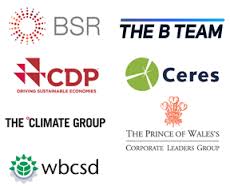
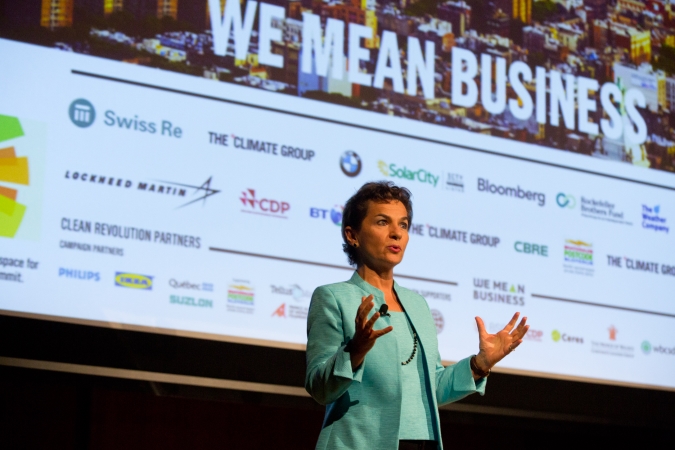
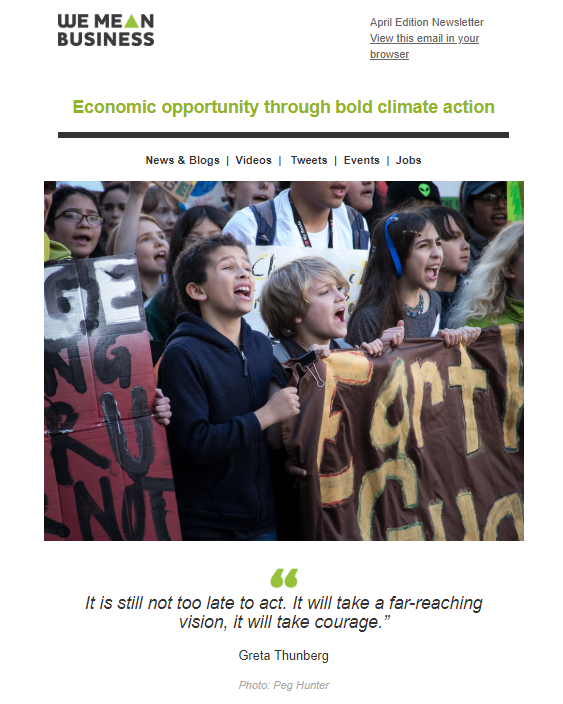
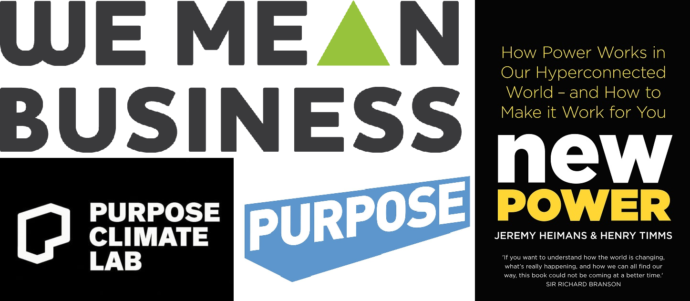
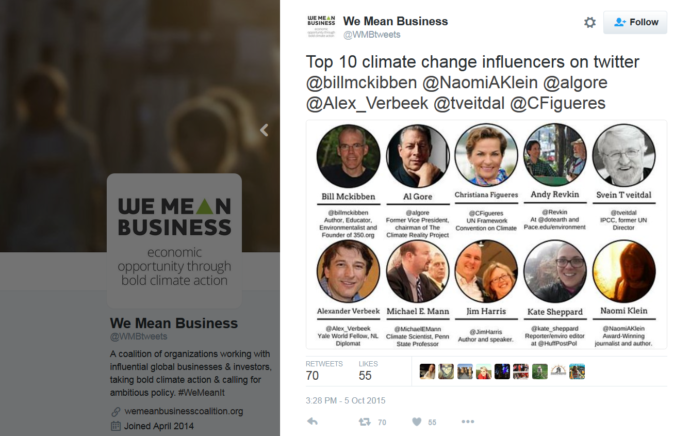
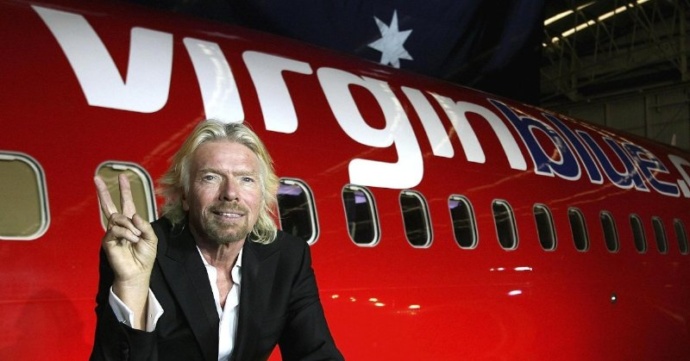
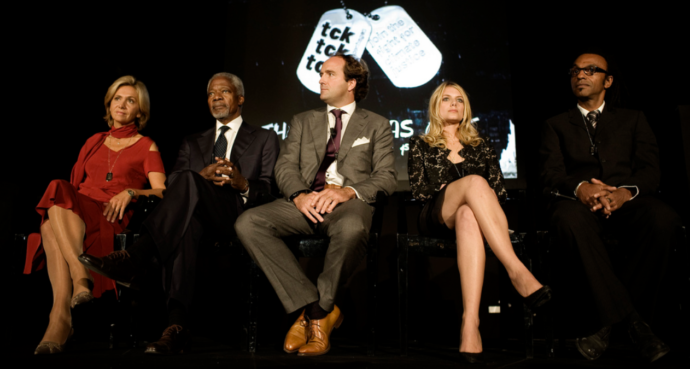
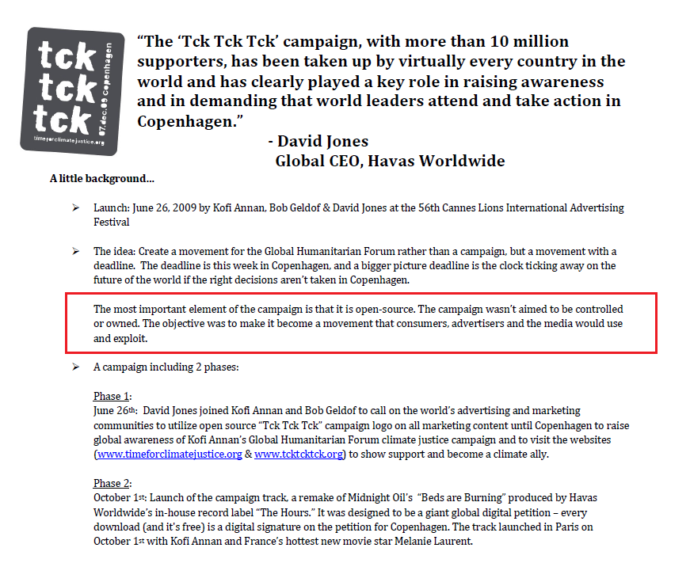
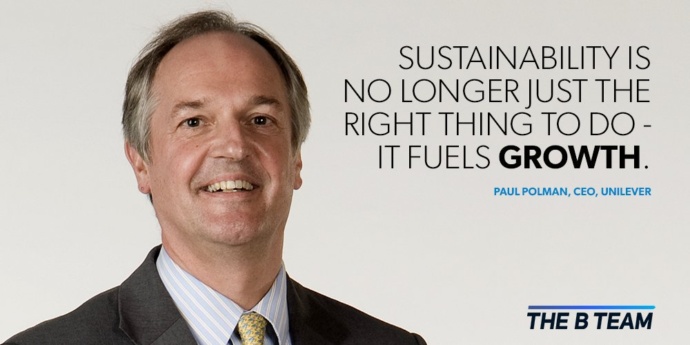
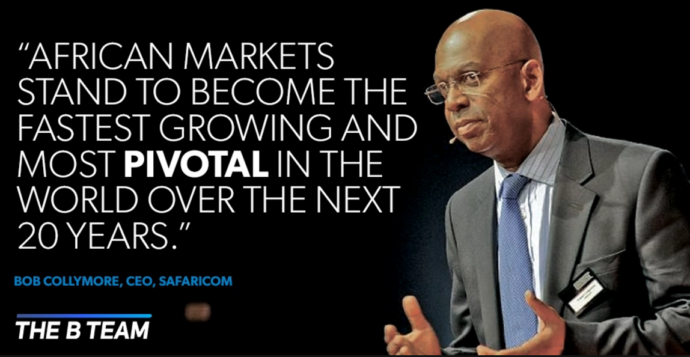
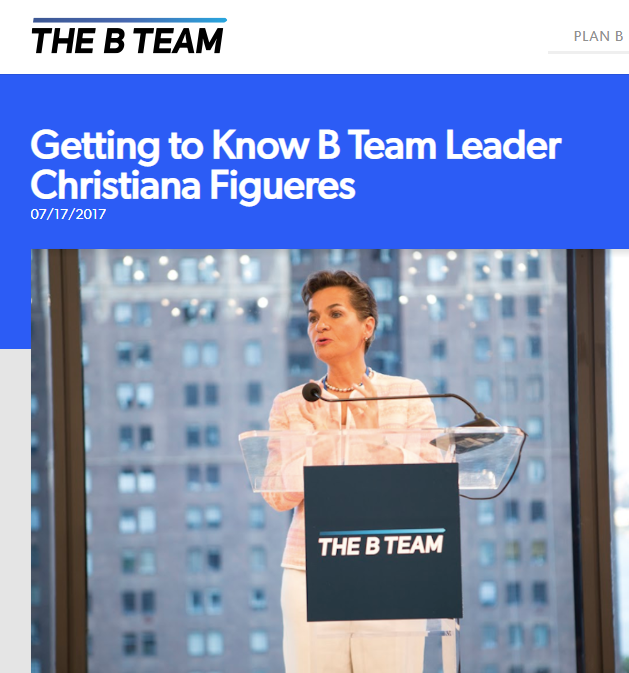
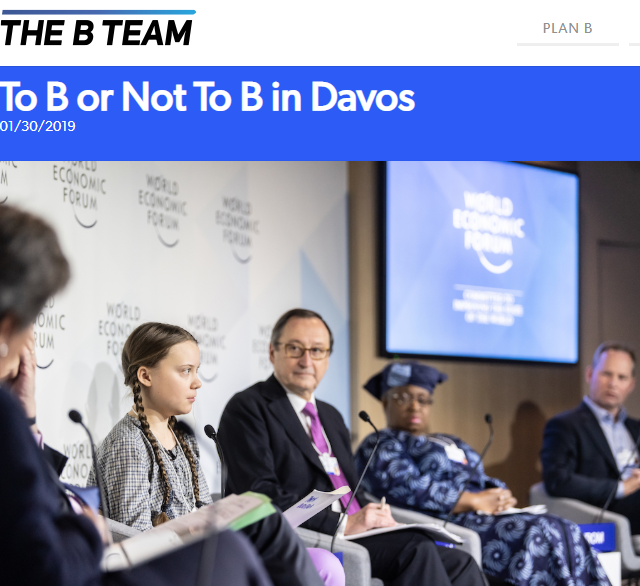
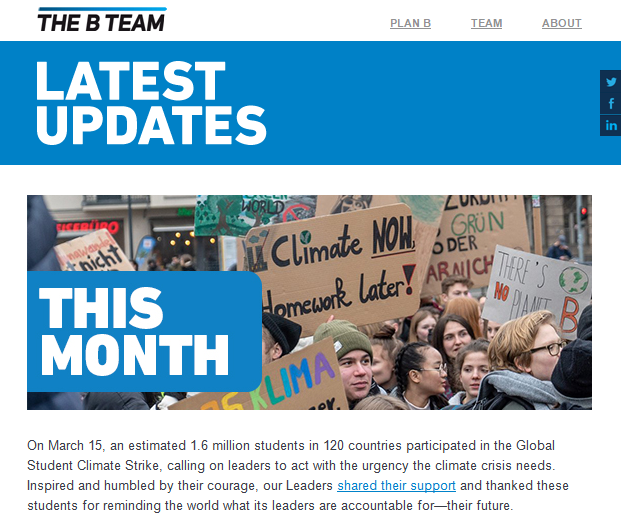
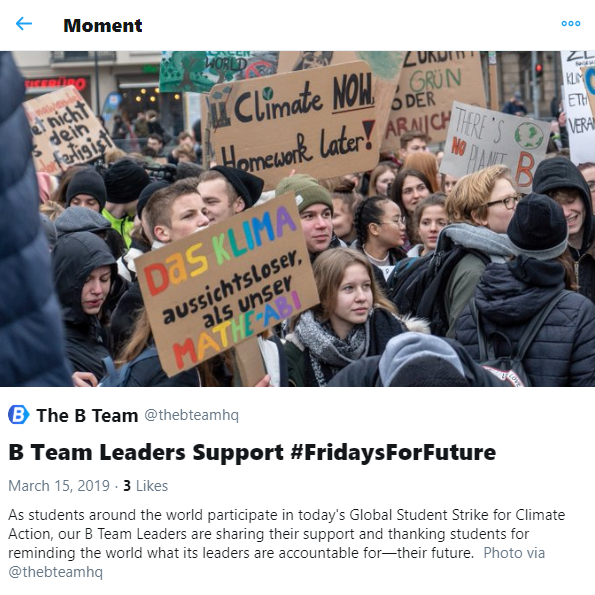

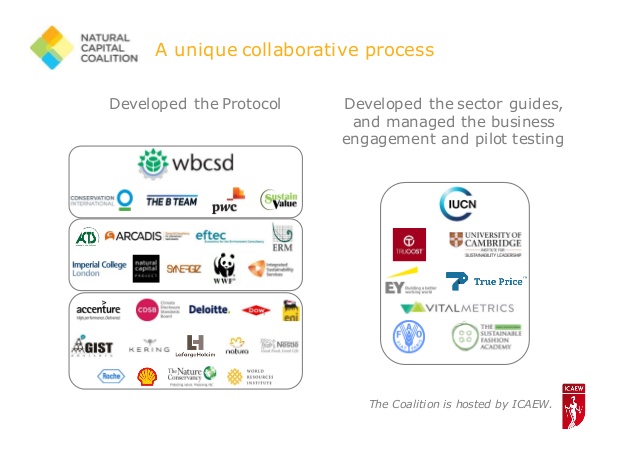
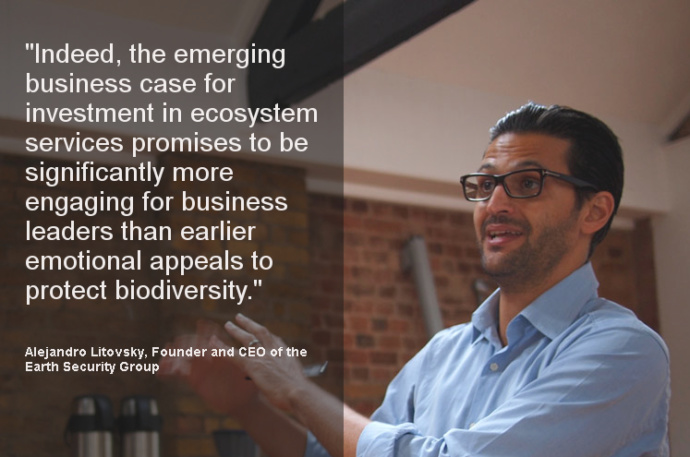
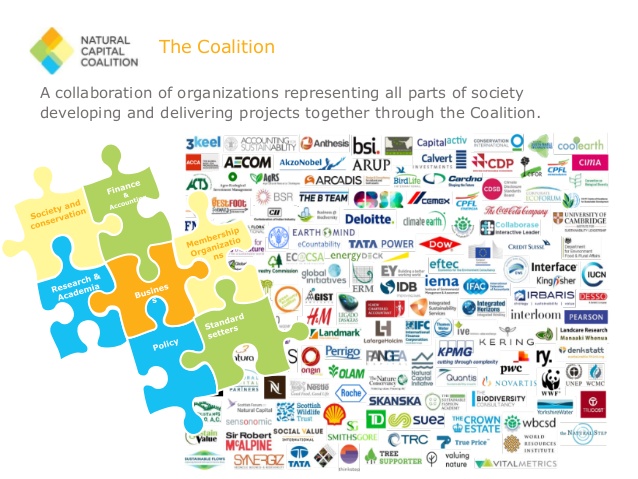
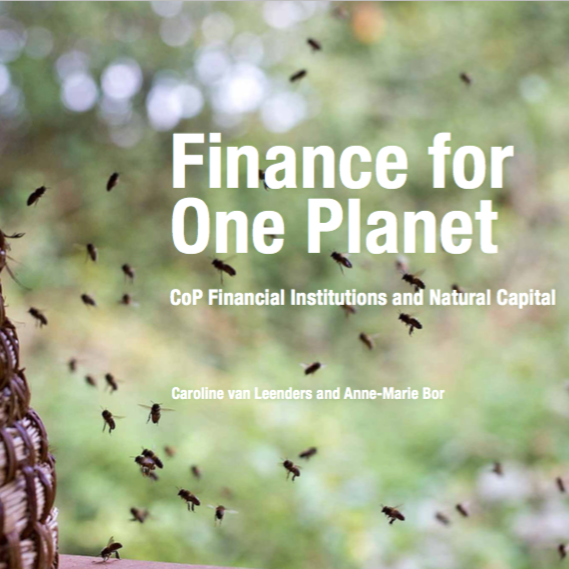
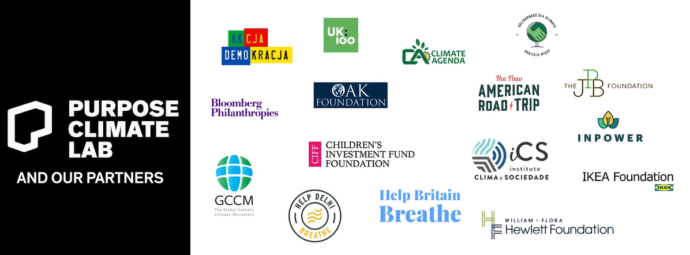
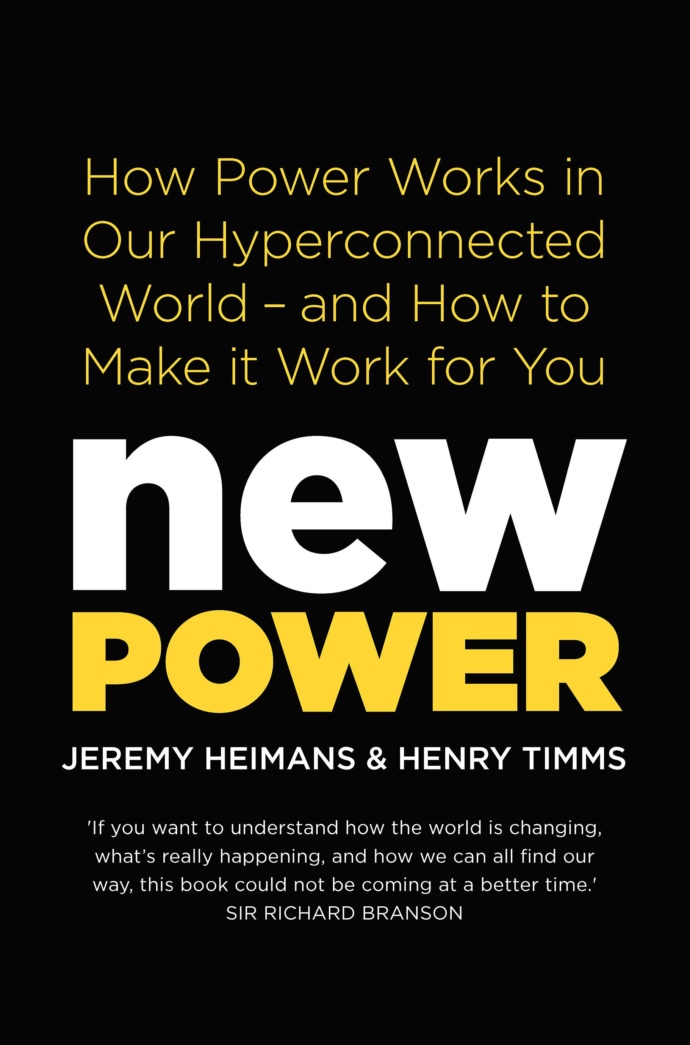

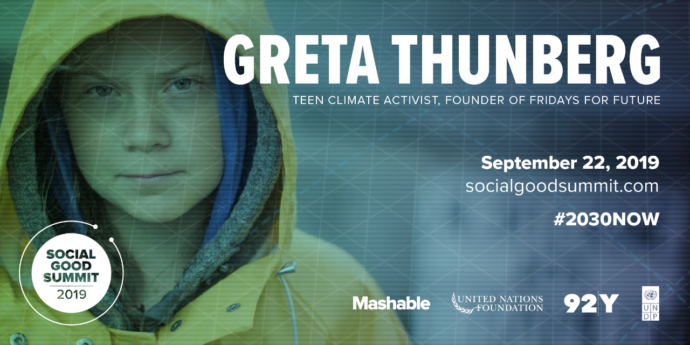
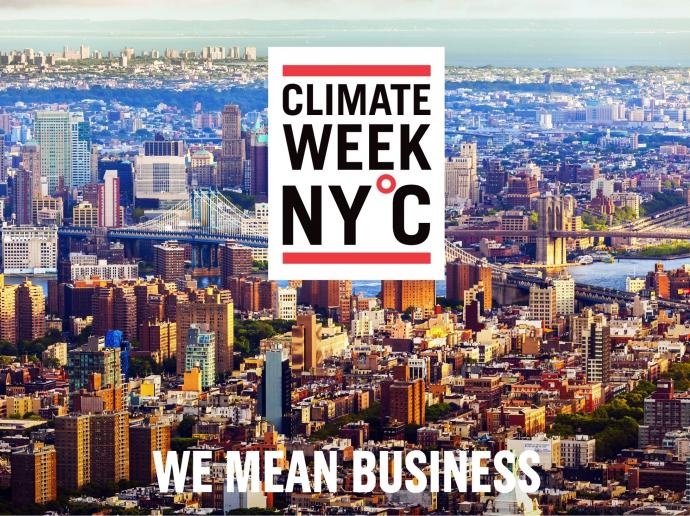
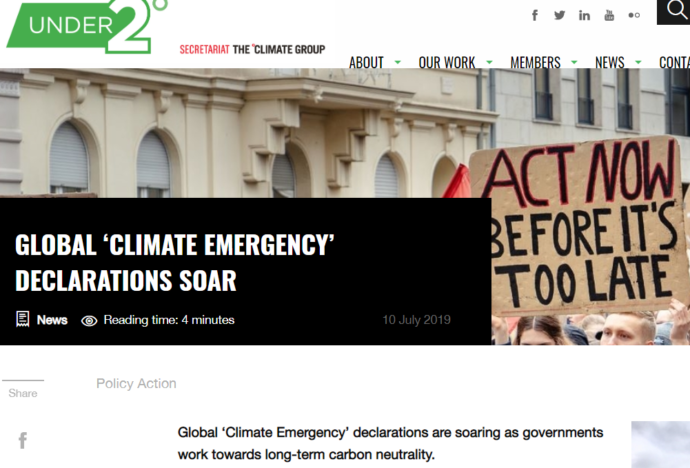
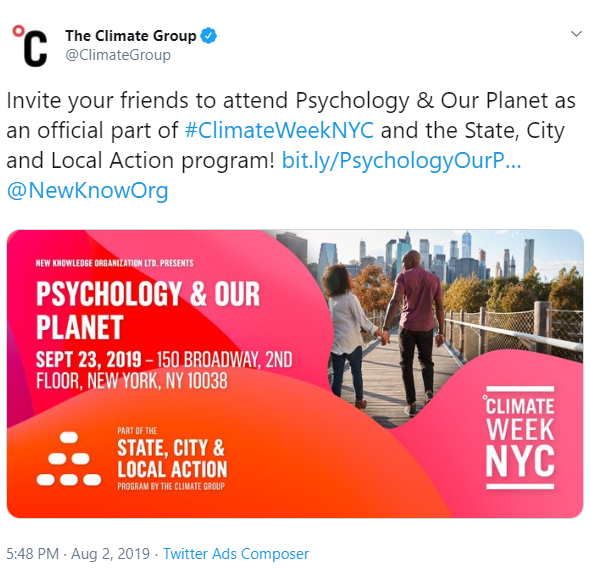
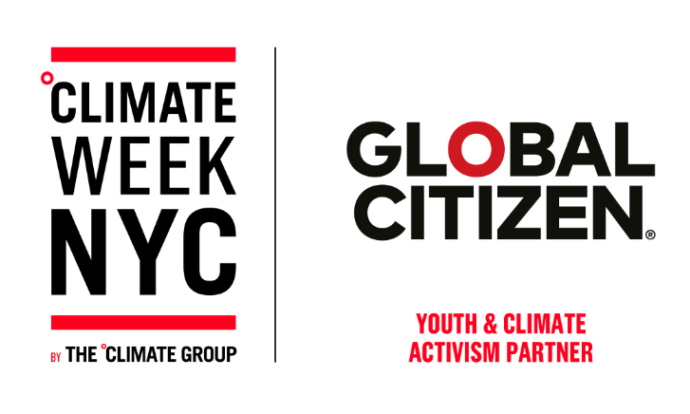
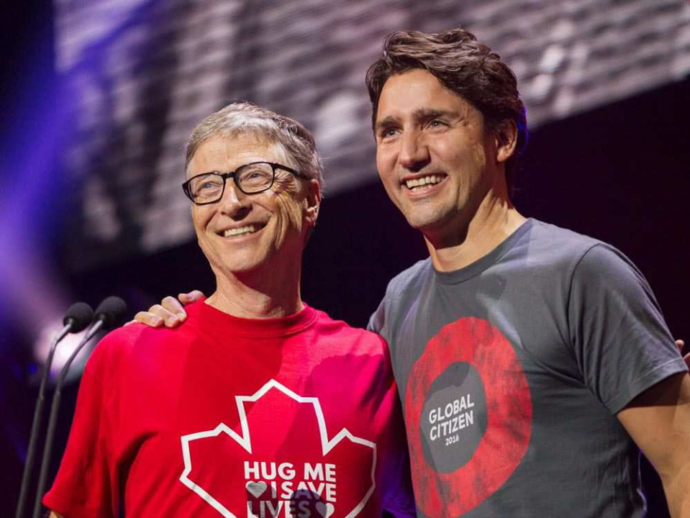
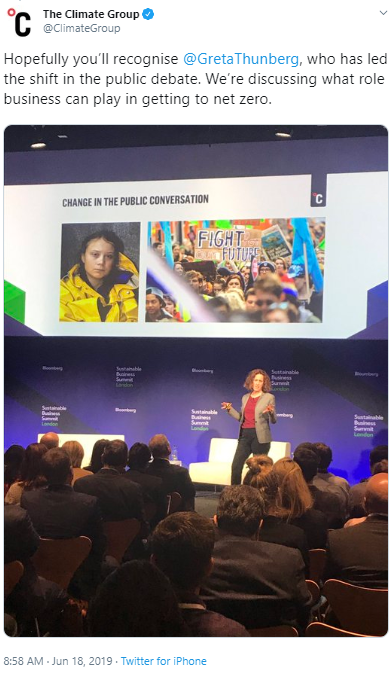

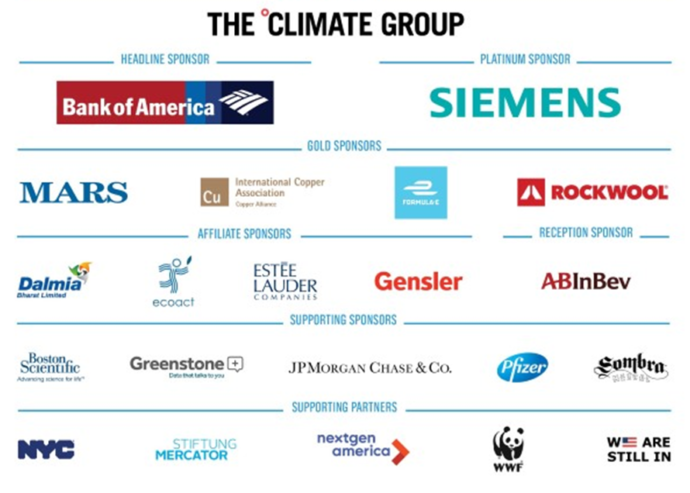
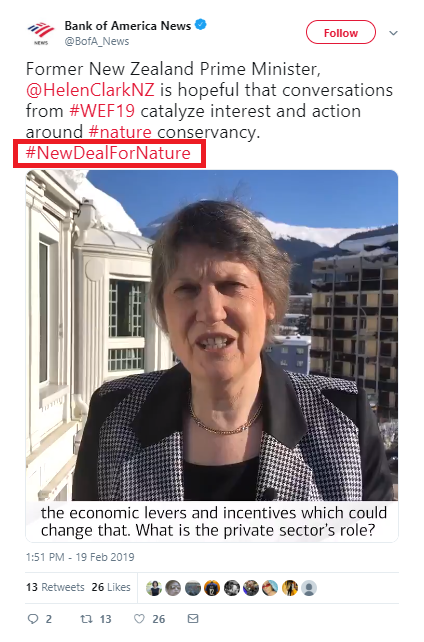
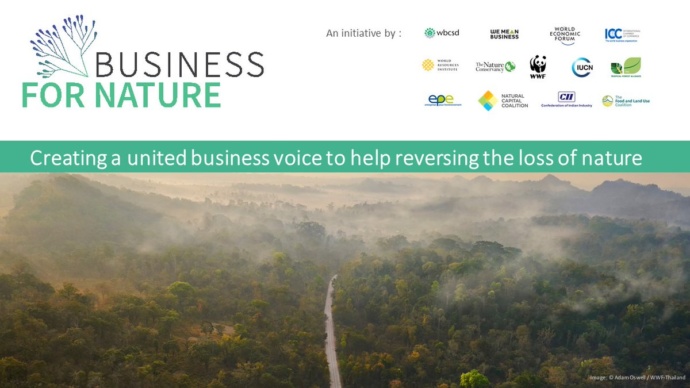
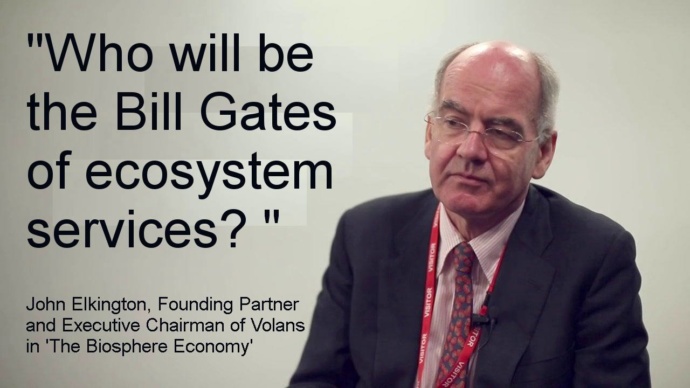
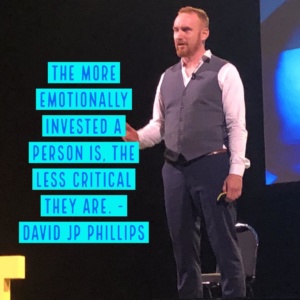
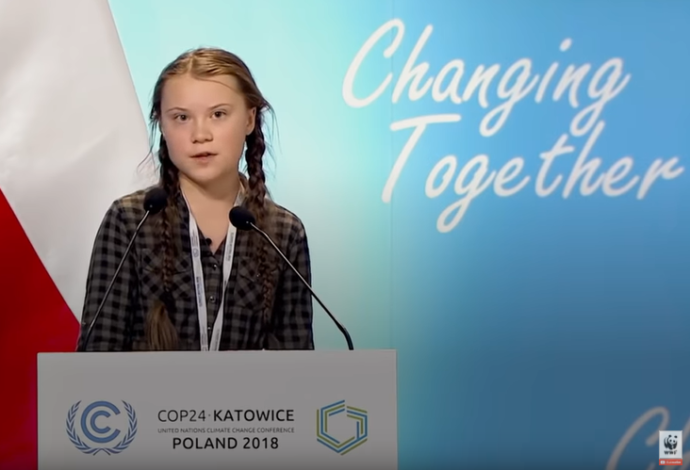
![Above: Sarkozy awards Ellen MacArthur the Légion d’Honneur, 2008 [Yachting World]](http://www.wrongkindofgreen.org/wp-content/uploads/2019/09/Sarkozy-awards-Ellen-the-Légion-d’Honneur-2.jpg)
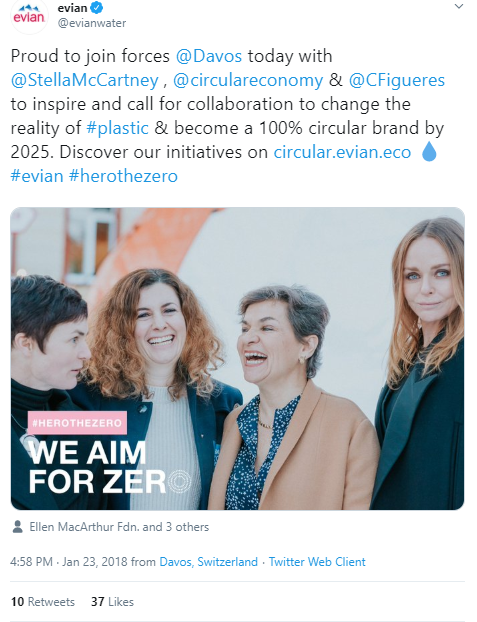
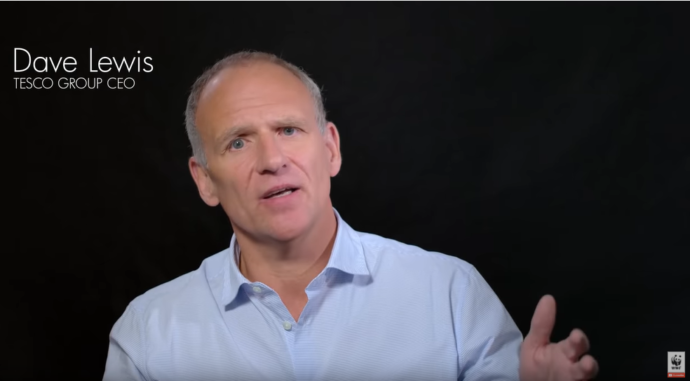
 Become a Patron!
Become a Patron!